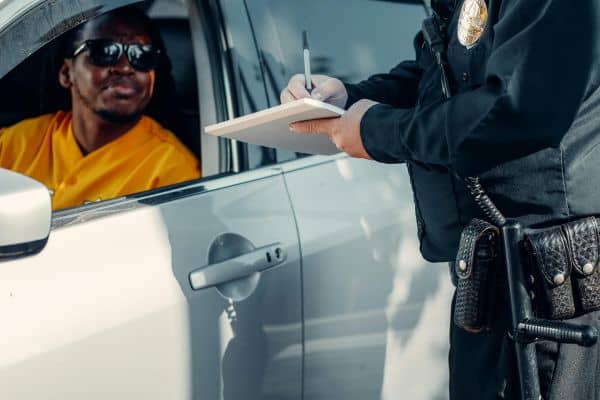What to Do if You Have a Warrant for Unpaid Traffic Tickets in SC

Failing to pay your traffic tickets can snowball into much bigger problems down the road. In South Carolina, unpaid tickets can quickly lead to a bench warrant being issued for your arrest.
Don’t panic though — having a warrant out doesn’t automatically mean you’ll be thrown in jail. There are steps you can take to resolve the situation and get that lingering warrant lifted.
Bench Warrants vs Arrest Warrants
When it comes to unpaid tickets, there are two main types of warrants that may be issued: bench warrants and arrest warrants.
A bench warrant is typically issued when you fail to appear in court for a scheduled hearing related to your ticket. This type of warrant gives law enforcement the authority to bring you before a judge to address the situation.
On the other hand, an arrest warrant is usually reserved for more serious offenses or cases where you’ve failed to pay fines as ordered by the court. If there’s an arrest warrant out for you, police have the power to take you into custody and keep you in jail until a court hearing can be held.
In South Carolina, bench warrants are commonly issued for unpaid traffic tickets under SC Code § 56-25-30. The law states that if you fail to comply with a traffic ticket by either paying the fine or appearing in court, the magistrate can issue a bench warrant requiring you to be brought before the court.
Consequences of Ignoring an Unpaid Ticket Warrant
While it may be tempting to ignore an outstanding warrant and hope for the best, doing so can lead to serious repercussions.
If you’re caught driving with a warrant out for your arrest due to an unpaid ticket, you could face:
- Additional fines and fees added to your original ticket amount
- Suspension of your driver’s license
- Jail time, particularly if you have a history of unpaid tickets or failure to appear in court
- Long-term damage to your driving record
- Increased auto insurance rates for years to come
- Inability to renew your vehicle registration or driver’s license
These consequences aren’t just hypothetical – they happen to real people every day.
5 Steps to Resolve an Outstanding Ticket Warrant
While an unpaid ticket warrant hanging over your head can feel like an impossible weight, resolving the issue is within reach. Here’s what you can do:
Contact the Traffic Court
Your first step should be contacting the traffic court that issued your ticket to get clarity on the situation. Be prepared with your ticket number, license plate number, and driver’s license. The court clerk can explain exactly what you need to do to take care of the warrant and unpaid ticket.
If you cannot pay the full fine upfront, ask about your options. Many South Carolina courts offer payment plans or fine reduction programs for those experiencing financial hardship. The important thing is to communicate your situation and show that you’re making a good-faith effort to resolve the issue.
Consider Hiring a Traffic Ticket Attorney
An experienced lawyer can contact the court on your behalf to discuss the recall of the warrant and negotiate for a new court date, giving you time to get your ducks in a row.
Your attorney can also appear in court with you to present your case in the best possible light and work to minimize penalties. In some situations, a lawyer may even be able to get your ticket dismissed entirely, helping you avoid fines and keep your driving record clean.
Appear in Court
Once you have a court date set, either through your communication with the court or with the help of an attorney, you must appear as scheduled. Failing to show up will only lead to additional warrants and make your situation worse.
On your court date, be prepared to explain your circumstances and present any evidence you have, such as documentation of financial hardship or proof that you’ve already completed traffic school. Dress professionally and be respectful to the judge and court staff.
The key is being proactive and forthcoming about your willingness to make things right.
Follow Through with Court Requirements
If the court agrees to a payment plan or other resolution for your unpaid ticket, it’s essential that you follow through with your end of the bargain. Make sure you understand exactly what’s required of you before leaving the courthouse, and don’t hesitate to ask for clarification if needed.
Keep up with your payment schedule and make sure the court has your current contact information on file. If you’re ordered to complete traffic school or other programs, get it done in a timely manner and submit any required documentation to the court.
Once you’ve held up your end of the deal, make sure to get written confirmation from the court that your obligations have been satisfied. Hold onto this paperwork in case any questions arise in the future.
You Don’t Have to Face This Alone
Discovering you have an outstanding warrant for an unpaid ticket can make you feel anxious, overwhelmed, and unsure of where to turn. Know that you don’t have to navigate this stressful experience alone.
At Okoye Law, our experienced traffic ticket attorneys have been helping South Carolina drivers just like you resolve unpaid tickets for many years. We’re intimately familiar with local traffic laws and court procedures, and we know how to position your case for a favorable outcome. With over 120+ 5-star reviews on Google, you can trust us to handle your situation with skill, understanding, and discretion.
Don’t let an unpaid ticket warrant derail your life for one more day. Contact Okoye Law now to schedule a consultation with one of our caring traffic ticket lawyers. Together, we’ll chart a path forward so you can put this stressful situation behind you for good.
